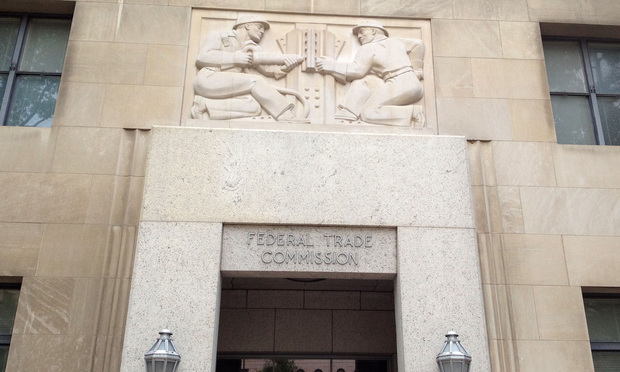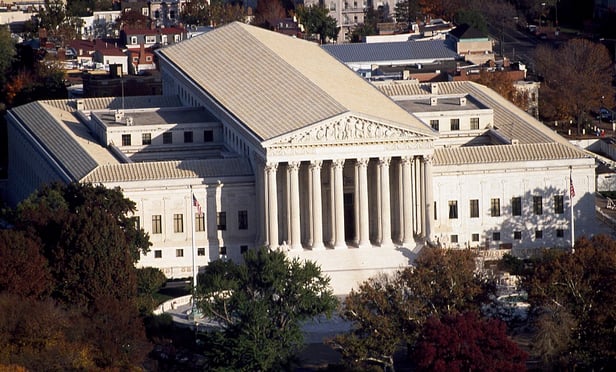Carl W Hittinger

August 14, 2015 | The Legal Intelligencer
FTC Issues 'Enforcement Principles' Governing Competition AuthorityOver 100 years since Congress passed the Federal Trade Commission Act, the Federal Trade Commission has finally issued formal guidance interpreting the central provision underlying the agency's antitrust enforcement authority. Under Section 5 of the FTC Act, the FTC can take action against "unfair methods of competition in or affecting commerce."
By Carl W. Hittinger and M. Mitchell Oates
4 minute read
August 12, 2015 | New Jersey Law Journal
'Actavis' Decision Not Limited to Cash PaymentsThe Third Circuit resolved an intra-circuit split by holding that a noncash, no-AG settlement agreement may also trigger antitrust scrutiny.
By Carl W. Hittinger and Lesley McCall Grossberg
8 minute read
August 12, 2015 | New Jersey Law Journal
'Actavis' Decision Not Limited to Cash PaymentsThe Third Circuit resolved an intra-circuit split by holding that a noncash, no-AG settlement agreement may also trigger antitrust scrutiny.
By Carl W. Hittinger and Lesley McCall Grossberg
8 minute read

August 03, 2015 | The Legal Intelligencer
Ruling on Economic Favoritism Puts 'NC Dental' Back in SpotlightIn a recent opinion, a divided panel of the U.S. Court of Appeals for the Second Circuit ruled that an economic regulation passed by a state agency solely to protect one group from competition would not violate the constitutional guarantees of due process or equal protection. The court noted that such action might still violate antitrust laws, but went no further since no antitrust claim had been raised in the case. At least in the Second Circuit, this decision raises the stakes in future cases interpreting the scope of state-action immunity under the antitrust laws.
By Carl W. Hittinger and M. Mitchell Oates
9 minute read

August 02, 2015 | The Legal Intelligencer
Ruling on Economic Favoritism Puts 'NC Dental' Back in SpotlightIn a recent opinion, a divided panel of the U.S. Court of Appeals for the Second Circuit ruled that an economic regulation passed by a state agency solely to protect one group from competition would not violate the constitutional guarantees of due process or equal protection. The court noted that such action might still violate antitrust laws, but went no further since no antitrust claim had been raised in the case. At least in the Second Circuit, this decision raises the stakes in future cases interpreting the scope of state-action immunity under the antitrust laws.
By Carl W. Hittinger and M. Mitchell Oates
9 minute read

July 06, 2015 | The Legal Intelligencer
Patent Defeats Antitrust in Latest Test at Supreme CourtIn Kimble v. Marvel Entertainment, 576 U.S. ____ (2015), the U.S. Supreme Court considered whether to overturn Brulotte v. Thys, 379 U.S. 29 (1964), its 1964 decision holding that it was per se unlawful for a patent owner to charge royalties for use of a patented invention after the licensed patent has expired. In a 6-3 decision by Justice Elena Kagan, the court in Kimble concluded that it was required by stare decisis to affirm the Brulotte rule.
By Carl W. Hittinger and M. Mitchell Oates
9 minute read

July 04, 2015 | The Legal Intelligencer
Patent Defeats Antitrust in Latest Test at Supreme CourtIn , 576 U.S. ____ (2015), the U.S. Supreme Court considered whether to overturn , 379 U.S. 29 (1964), its 1964 decision holding that it was per se unlawful for a patent owner to charge royalties for use of a patented invention after the licensed patent has expired. In a 6-3 decision by Justice Elena Kagan, the court in concluded that it was required by stare decisis to affirm the rule.
By Carl W. Hittinger and M. Mitchell Oates
9 minute read

June 01, 2015 | The Legal Intelligencer
FTC Failure to Adopt Section 5 Guidelines Still Hot-Button IssueSection 5 of the FTC Act gives the Federal Trade Commission the authority to take action against "unfair methods of competition." The act was enacted over 100 years ago, and its legislative history indicates that it was left to the FTC to provide specific content to this broad and general language. However, there is still little clarity today regarding what conduct qualifies and does not qualify as an "unfair method of competition" that might subject an actor to enforcement proceedings, litigation, and/or monetary penalties.
By Carl W. Hittinger and M. Mitchell Oates
11 minute read

May 30, 2015 | The Legal Intelligencer
FTC Failure to Adopt Section 5 Guidelines Still Hot-Button IssueSection 5 of the FTC Act gives the Federal Trade Commission the authority to take action against "unfair methods of competition." The act was enacted over 100 years ago, and its legislative history indicates that it was left to the FTC to provide specific content to this broad and general language. However, there is still little clarity today regarding what conduct qualifies and does not qualify as an "unfair method of competition" that might subject an actor to enforcement proceedings, litigation, and/or monetary penalties.
By Carl W. Hittinger and M. Mitchell Oates
11 minute read

May 04, 2015 | The Legal Intelligencer
'Actavis' Still Raising More Questions Than It AnswersNearly two years after the U.S. Supreme Court's decision in Federal Trade Commission v. Actavis, 133 S. Ct. 2223 (2013), "reverse payment" settlements in patent litigation between brand-name drug manufacturers and potential generic entrants remain a hot topic in the antitrust world. At the American Bar Association's Antitrust Law Spring Meeting, held in Washington, D.C., last month, reverse payments were discussed at numerous sessions, including one session devoted exclusively to the topic.
By Carl W. Hittinger and M. Mitchell Oates
10 minute read
Trending Stories
- 1Judge Denies Sean Combs Third Bail Bid, Citing Community Safety
- 2Republican FTC Commissioner: 'The Time for Rulemaking by the Biden-Harris FTC Is Over'
- 3NY Appellate Panel Cites Student's Disciplinary History While Sending Negligence Claim Against School District to Trial
- 4A Meta DIG and Its Nvidia Implications
- 5Deception or Coercion? California Supreme Court Grants Review in Jailhouse Confession Case
More from ALM
- Legal Speak at General Counsel Conference East 2024: Match Group's Katie Dugan & Herrick's Carol Goodman 1 minute read
- Legal Speak at General Counsel Conference East 2024: Eric Wall, Executive VP, Syllo 1 minute read
- Legal Speak at General Counsel Conference East 2024: Virginia Griffith, Director of Business Development at OutsideGC 1 minute read



